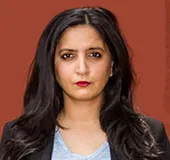
Lebanon’s new government is expected to lift all subsidies by the end of this month. Over the last two years, Lebanon’s economy collapsed, and the state went bankrupt. Early August, the Governor of Lebanon’s Central Bank, Riad Salameh, said that the state could no longer afford subsidies as the country’s foreign reserves have severely depleted. The decision was opposed by the caretaker government. But, last week, as Lebanon’s political factions finally formed a new government, Prime Minister Najib Mikati endorsed the lifting of subsidies as an unpleasant but necessary step to lead the country towards economic recovery.
Under this scheme, these cards would be given to 500,000 people in a population of nearly 6 million, which includes more than 1.5 million refugees.
“It is true that we don’t have a magic wand. The situation is very difficult,” the PM said. “Where are we going to get dollars to subsidise? We are dry. It is not our desire, but we don’t have any reserves or money that allows us to help.”
For the neediest, the government has allocated US $556 million to be distributed through cash cards. Under this scheme, these cards would be given to 500,000 people in a population of nearly 6 million, which includes more than 1.5 million refugees. Each family would get not more than US $125 and they can spend it on whatever they like. However, it is not clear whether the money would be dispensed in dollars or Lebanese pounds. The local currency has steadily plummeted over the last two years and lost 90 percent of its value, only regaining marginally last week after the formation of the government boosted the market’s morale.
The idea to replace cash with subsidies is not a new one and has essentially been adopted to make sure that only those who deserve it get the benefit. But it has been widely criticised for leaving out a large number of people. Masses of the poor have been left out of the scheme in Lebanon. According to a study by the United Nations Economic and Social Commission for West Asia (ESCWA), the economic crisis has pushed 78 percent of the population into poverty but only a tiny number of those have been deemed poor by the state.
The idea to replace cash with subsidies is not a new one and has essentially been adopted to make sure that only those who deserve it get the benefit. But it has been widely criticised for leaving out a large number of people.
Secondly, experts believe that these cash cards will become yet another instrument in the hands of the political parties who will use these as bribes—cash in exchange for votes—in elections slated to happen next year.
The only silver lining is that the International Monetary Fund (IMF) might see it as fiscal discipline on the part of the state and it might gain some confidence to gradually give out at least a part of a large loan that is needed to extract Lebanon from this mess.
President Michel Aoun, who was accused of holding up the formation of the government for nearly 13 months, told the Cabinet that urgent reforms were required to save the country. “We need the help of the IMF, the World Bank, regional and international funds,” he said. “What is required are urgent, decisive steps to start reforms.”
France has been waiting for Lebanon’s political elite to usher in economic and political reforms to facilitate a bailout from the international community. But their reticence is expected to continue on any change that threatens their continuation in power or control of those in power. Removal of subsidies on the other hand hurts the poor.
Iran-backed Hezbollah announced that Iranian-tankers were on their way to Lebanon, in blatant violation of American sanctions against purchase of oil for Iran, American Ambassador to Lebanon, Dorothy Shea, quickly offered what she called a cheaper and more sustainable solution to resolve Lebanon’s energy crisis.
The fuel and electricity crises this summer, left the Lebanese in despair and with exacerbated fears of social disorder. Last month as Iran-backed Hezbollah announced that Iranian-tankers were on their way to Lebanon, in blatant violation of American sanctions against purchase of oil for Iran, American Ambassador to Lebanon, Dorothy Shea, quickly offered what she called a cheaper and more sustainable solution to resolve Lebanon’s energy crisis.
“I’m trying to find solutions for the Lebanese people,” she told Al Arabiya English in an interview just a few hours after Nasrallah’s announcement. “We’ve been talking to the governments of Egypt, Jordan, the government here , the World Bank.”
The US has agreed to let Egyptian gas come through Jordan and Syria and Jordanian electricity through the Syrian electrical grid to Lebanon. It has indicated that it will exempt countries that conduct business with Syria from sanctions under the Caesar act. “There is a will to make this happen. There will be some logistical things that need to happen too, but I think that it will all fall into place fairly easily,” added Ambassador Shea.
The Lebanese are desperate for any help.
The views expressed above belong to the author(s). ORF research and analyses now available on Telegram! Click here to access our curated content — blogs, longforms and interviews.




 PREV
PREV


